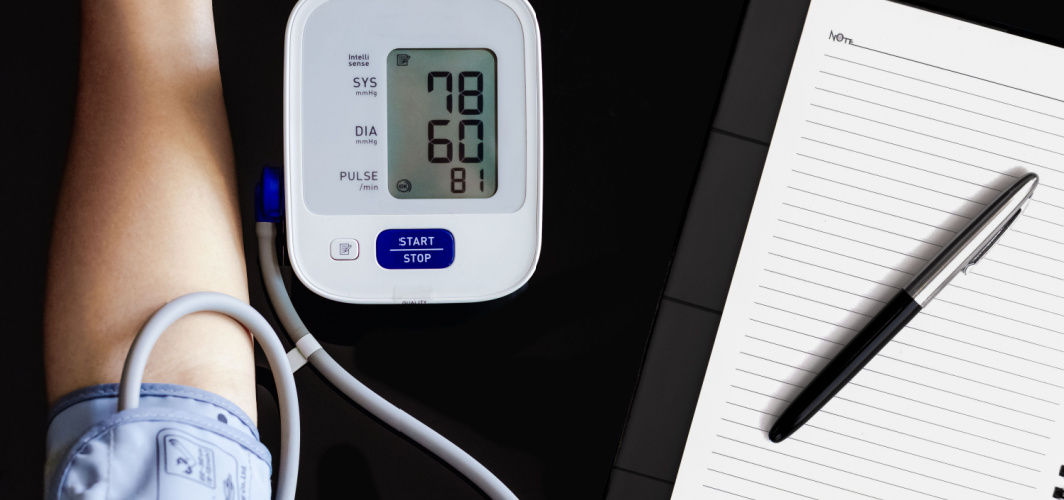General Health
Tests to Determine Kidney Function
7 min read
By Apollo 24|7, Published on - 05 October 2023
Share this article
0
0 like

The kidneys play a vital role in maintaining overall health and well-being. They filter waste products, regulate electrolyte balance, and help control blood pressure. Therefore, it is essential to monitor kidney function regularly to detect any abnormalities or diseases in their early stages. Your doctor will advise you on which kidney function test to undergo to determine the condition and advancement of any disease well in time. In this blog, we will discuss different types of kidney function test, kidney function test price and their relevance for different types of kidney patients.
Types of Kidney Function Tests
Kidney function tests, also known as renal function tests, are a group of blood and urine tests that provide information about how well the kidneys are working. These tests help assess the filtration rate, electrolyte balance, and waste product elimination. Here are some common types of kidney function tests:
1. Glomerular Filtration Rate (GFR)
The Glomerular Filtration Rate (GFR) is an important kidney function test. It refers to the rate at which the kidneys filter blood and remove waste products from the body. GFR is typically measured in millilitres per minute (ml/min) and is used to assess how well the kidneys are functioning. The GFR is influenced by various factors, including:
- Age
- Gender
- Body size
- Overall health
A decline in GFR can indicate kidney dysfunction or disease. It is commonly used to diagnose and monitor conditions such as chronic kidney disease (CKD) and acute kidney injury (AKI).
Measuring GFR can be done through different methods, including blood tests and urine tests. The most common method is the estimation of GFR using a blood test called serum creatinine.
2. Blood Tests for Kidney Function
Blood tests for kidney function play a crucial role in assessing the health of your kidneys and diagnosing potential kidney diseases. These tests measure certain substances in your blood that can indicate how well your kidneys are functioning. Types of blood tests for kidney function include:
- Blood Urea Nitrogen (BUN) Test: Urea nitrogen is a waste product that is produced when proteins are broken down in the liver. The Blood Urea Nitrogen test measures urea nitrogen levels in the blood - elevated levels of BUN can be a sign of decreased kidney function.
- Serum Creatinine Test: The Serum Creatinine test measures the level of creatinine in the blood, which is a waste product produced by muscle activity. Higher levels of creatinine in the blood may indicate decreased kidney function and a lower GFR.
- Estimated GFR (eGFR) Calculation: Estimated GFR Test can be estimated using equations that take into account factors such as age, sex, race, and blood creatinine levels. However, for a more accurate measurement, a test called the "GFR test" may be performed. A GFR below 60 mL/min/1.73m² for three months or longer is indicative of kidney disease.
3. Urine Tests for Kidney Function
Urine tests are simple, non-invasive, and can help detect early signs of kidney disease or monitor the progress of an existing condition. They can help identify abnormalities in the urine, such as protein or blood, which may indicate underlying kidney problems.
Additionally, urine tests measure the levels of waste products in the urine, such as creatinine and urea nitrogen, which provide insights into how well the kidneys are filtering out toxins from the body. Types of urine tests include:
- Urinalysis: A routine urinalysis can provide valuable information about the overall health and functioning of the kidneys. It examines various aspects such as colour, clarity, pH, presence of blood cells, bacteria, or crystals that may indicate an underlying kidney problem.
- Proteinuria Test: Proteinuria is the presence of excess protein in the urine, which can be a sign of kidney damage or dysfunction. A simple dipstick test can detect proteinuria, but further testing may be required to determine its cause.
- Microalbuminuria Test: This test specifically measures the level of albumin (a type of protein) in the urine. Elevated levels of microalbumin may signify early kidney damage, especially in individuals with diabetes or hypertension.
4. Imaging Tests for Kidney Function
When it comes to assessing kidney function, medical professionals often rely on imaging tests. These tests provide valuable insights into the structure and functioning of the kidneys. Types of imaging tests for kidney function include:
- Ultrasound Scan: Ultrasound is a non-invasive imaging test that uses sound waves to create images of the kidneys. It provides information about the size, shape, and overall structure of the kidneys. Ultrasound can detect various abnormalities, such as kidney stones or cysts. It is a safe and painless procedure with no known side effects.
- CT Scan: A CT scan provides a more comprehensive view of the kidneys, including their blood vessels and surrounding structures. CT scans are particularly useful in identifying tumours, infections, or obstructions within the kidneys. However, due to the use of radiation, CT scans are not recommended for pregnant women or individuals at risk of radiation exposure.
- MRI Scan: Magnetic Resonance Imaging (MRI) offers excellent visualization of soft tissues and can help identify abnormalities such as tumours or masses. MRI does not involve radiation exposure, making it a safer option for certain individuals. Ultrasound can start from Rs. 500/- while MRI costing starts from Rs. 4,000/- depending on the city and facility where you're undergoing the test.
5. Biopsy as a Diagnostic Tool for Kidney Function
A kidney biopsy is a medical procedure in which a small piece of kidney tissue is extracted for analysis. It helps doctors determine the cause and severity of kidney problems by examining the tissue under a microscope.
The procedure involves inserting a special needle through the skin and into the kidney to obtain a sample of tissue. It is usually performed under local anaesthesia with the guidance of ultrasound or CT scan.
While kidney biopsies are generally safe, there are certain risks associated with the procedure, including:
- Bleeding
- Infection
- Damage to surrounding organs
However, these complications are rare and can be minimized with proper precautions. A kidney biopsy is typically recommended when other diagnostic tests, such as blood and urine tests, are inconclusive or when there is a need to evaluate kidney diseases like glomerulonephritis, nephrotic syndrome, or lupus nephritis.
6. Other Tests and Measures for Kidney Function
There are tests which are generally recommended by your physician for further investigation if the preliminary investigation fails to provide insights into the problem at hand. These include:
- Electrolyte Panel Test: This test assesses levels of key electrolytes in the blood, such as sodium, potassium, and calcium. These electrolytes help regulate bodily functions like nerve and muscle function, hydration, and pH balance. Imbalances can indicate kidney dysfunction or other health issues.
- Albumin-to-Creatinine Ratio (ACR): This test measures the amount of albumin, a protein, in the urine relative to creatinine, a waste product. A high ACR indicates damage to the kidneys' filtering system. This test is particularly important for individuals with diabetes or high blood pressure, as they are at higher risk of developing kidney disease.
- Cystatin C Test: Cystatin C Test is a more accurate measure of kidney function than creatinine-based tests. Cystatin C is a protein that is filtered by the kidneys and can detect even small changes in kidney function. This test is especially useful in detecting early kidney disease when other tests may still appear normal.
Conclusion
It is important to note that regular monitoring of kidney function through blood tests is especially important for individuals with risk factors for kidney disease, such as diabetes, high blood pressure, family history of kidney disease, or certain medications that can affect kidney function. It is important to follow your healthcare provider's instructions to ensure accurate results. A kidney function test is an essential tool in evaluating and monitoring the health of your kidneys. Kidney function test price may vary across cities and diagnostic labs. By detecting abnormalities early on, these tests can help guide appropriate treatment and management strategies to prevent or slow the progression of kidney disease.
General Health
Consult Top Nephrologists
View AllFrequently Asked Questions
What is one of the common early signs of kidney damage?
What is one of the common early signs of kidney damage?
What is creatinine?
What is creatinine?
In the human body which organ produces urea nitrogen?
In the human body which organ produces urea nitrogen?
How does regular exercise help kidney health?
How does regular exercise help kidney health?
Can diet affect kidney health?
Can diet affect kidney health?
Leave Comment
Recommended for you

General Health
10 Most Googled Questions On Thyroid Answered By An Apollo Expert
The thyroid gland is responsible for metabolism, growth, and several other important functions. Read to know how abnormal functioning of this gland can affect your overall well-being.

General Health
Beyond Oranges: Lesser-Known Fruits Packed with Vitamin C
Discover a world of vitamin C beyond oranges. Explore lesser-known fruits that deliver a powerful dose of this essential nutrient.

General Health
7 Signs Of Low Blood Pressure You Must Know About
Discover 7 crucial signs of low blood pressure you must be aware of. Recognise symptoms early for timely intervention and better health management.
Subscribe
Sign up for our free Health Library Daily Newsletter
Get doctor-approved health tips, news, and more.
Visual Stories

Plant-based Foods That Are a Great Source of Iron
Tap to continue exploring
Recommended for you

General Health
10 Most Googled Questions On Thyroid Answered By An Apollo Expert
The thyroid gland is responsible for metabolism, growth, and several other important functions. Read to know how abnormal functioning of this gland can affect your overall well-being.

General Health
Beyond Oranges: Lesser-Known Fruits Packed with Vitamin C
Discover a world of vitamin C beyond oranges. Explore lesser-known fruits that deliver a powerful dose of this essential nutrient.

General Health
7 Signs Of Low Blood Pressure You Must Know About
Discover 7 crucial signs of low blood pressure you must be aware of. Recognise symptoms early for timely intervention and better health management.
